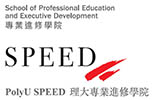雙語社評齊齊聽
[英語 (足本收聽)] Presented by LEUNG, Shin-yee Cindy, Lecturer of Hong Kong Community College, The Hong Kong Polytechnic University
[普通話 (足本收聽)] Presented by Dr YAO, Shuiying Jennifer, Lecturer of Hong Kong Community College, The Hong Kong Polytechnic University
Two former senior staff of Stand News, a Hong Kong news website, were charged yesterday (30 December 2021) with ''conspiracy to publish seditious publications'' after they were held on suspicion of violating Sections 9 and 10 of the Crimes Ordinance.
Hong Kong media has always been known for the high degree of freedom it enjoys. Since the handover—even after the implementation of the Hong Kong National Security Law—reports and comments critical of the government's mistakes in governance have never ceased to be heard. At the same time, this is also an extremely sensitive issue. The press and the general public have often expressed worries about whether press freedom has been undermined. The SAR government has repeatedly emphasised that it respects press freedom and the spirit of the rule of law. Yet, after the shutdown of Apple Daily in June this year (2021) amid allegations of its violation of the National Security Law, another media outlet is now being accused of publishing seditious articles. The main focus has turned to whether there are any ulterior motives in pressing the charges.
The legal clauses prohibiting the publication of seditious articles in Hong Kong's criminal law are over one hundred years old. In the past, it was seditious articles that caused hatred or contempt for Her Majesty the Queen or the Hong Kong government that were barred from publication. After the handover, what is protected has become the central government and the SAR government. During the colonial era, the British Hong Kong government invoked the regulations at least twice. The first time was in 1952, when officers dispatched by the Guangdong Provincial Government to send condolences to the Tung Tau Estate fire victims in Hong Kong were stopped at the Lo Wu border crossing, which resulted in a riot and the fatal shooting of one protester. Ta Kung Pao was suspended by the court for publishing reports and reprinting comments published on the People's Daily. The central government intervened, and the matter resolved itself 12 days after the suspension of publication. The second time was during the large-scale riots in Hong Kong in 1967. Three leftist newspapers were said to have published seditious articles and were each ordered to suspend its publication. Several high-ranking members of the newspapers were sentenced to jail.
The notion that both the Hong Kong government and its people hold the rule of law in high regard is unlikely to be disputed by anyone. There is no reason why the people should not believe in the rule of law. Citizens demand that the government should comply with the clauses of the legal system and the spirit of the rule of law in governing the city. At the same time, it is the responsibility and obligation of citizens to obey the law. On this issue, the press and journalists enjoy no privileges. More importantly, they should not take advantage of their media platforms and their status as a journalist to act beyond the boundaries of their duties.
Journalists also have another role to play, namely to supervise the government's administration on behalf of the general public and to safeguard the public interest. They have a responsibility to expose government policies that are inappropriate and a mission to criticise officials who have failed to discharge their duties. It is believed that the press in Hong Kong will maintain its professionalism. The government should support the press in discharging its duties with legal principles and policies. Now that an extremely sensitive case has emerged and attracted widespread attention, it must be handled with care—there's no good in adding to the panic of the already-worried journalists. Before the court reaches a verdict that would formulate guidelines on what is meant by sedition and thus, what journalists should steer clear of, the police should disclose the contents of the articles involved in the Stand News case in an appropriate extent for journalists to reference. This could also go a long way towards reducing the likelihood of journalists recoiling from the industry and mitigating their anxieties.
媒體涉發布煽動刊物 傳媒人關注煽動定義
香港網媒「立場新聞」兩名前高層,涉嫌違反《刑事罪行條例》第9條和第10條,昨天被起訴控以「串謀發布煽動刊物」罪。
香港媒體歷來以享有高度自由見稱,回歸以來甚至是在實施《港區國安法》之後,批評政府施政失誤的報道與評論仍不絕於耳,而同時這又是極為敏感的議題,新聞界以及社會大眾,對新聞自由是否受到損害經常表示憂慮。特區政府反覆強調,尊重新聞自由以及法治精神,然而涉嫌違反國安法的《蘋果日報》今年6月關門,而今又有另一個媒體被控發表煽動性文章,究竟控罪是否有別的考慮,成為關注重點。
香港刑法關於禁止發表煽動文章的條文有上百年歷史,過去是禁止發表煽動文字,引起憎恨或藐視女王陛下本人或香港政府,回歸後受保護的對象變成中央政府和特區政府。殖民地期間,港英政府曾起碼兩次引用該條例,第一次是1952年,廣東省政府派員來港慰問東頭村大火災民被拒於羅湖關口,引發騷亂,一名示威者被槍殺,《大公報》因發表報道和及轉載《人民日報》的評論而被法庭判處停刊,中央政府提出交涉,最終在停刊12天後不了了之。第二次是1967年香港出現大規模騷亂,3份左派報章被指發表煽動文章,被勒令停刊,多名報紙高層被判入獄。
香港官民皆以法治為圭臬,相信沒有人會有異議,人們沒有理由不相信法治。市民要求政府施政,必須符合法制的條文和法治的精神,同時,守法是公民的責任與義務,媒體以及新聞工作者在守法問題上沒有特權,更加不應該利用傳媒平台和傳媒人身分,做超越傳媒本分的事。
新聞工作者還有另外一個身分,就是代表社會大眾去監督政府的施政,維護公眾利益,對於政府政策失當,有揭露的責任,對於官員失職,有批評的使命。相信香港新聞界會維持專業,政府應該在法理與政策上支持新聞界履行職守,現在出現一宗極其敏感的案子,引起廣泛關注,更加要小心處理,無謂使本已忐忑的新聞工作者徒添惶恐。在法庭就何謂煽動有判決、形成指引,讓傳媒人知所趨避之前,警方應適當公開立場新聞涉案的文章等內容,讓傳媒人參照,同樣可收趨避、紓緩忐忑之效。
明報社評2021.12.31






